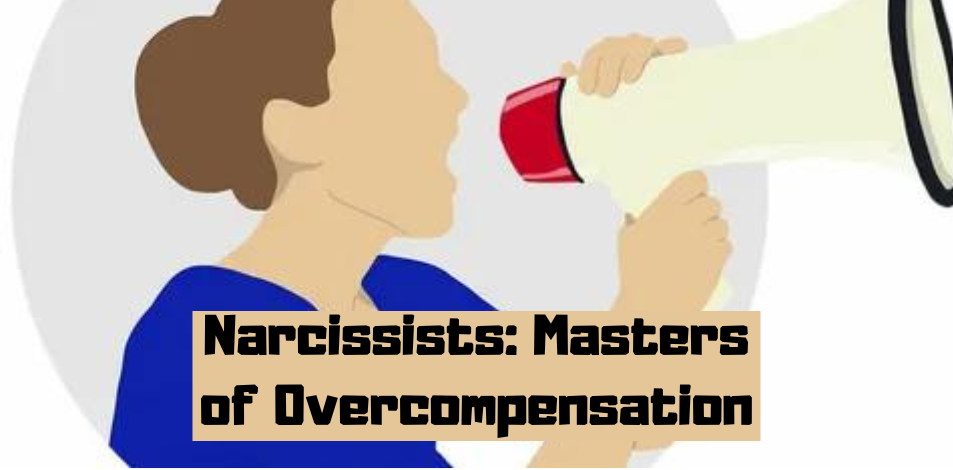
Now there is a consensus that narcissists hide, from themselves and others, a deficit in their self-image. They usually compensate for their underlying sense of inferiority by displaying a calculated manipulation of the world that can easily fool those around them, lure them into believing what the narcissist tells them, or present them as representing the essential truth of their existence.
If the narcissist’s overconfidence is fake, if it is all a mask to cover up the troubling self-doubt they may have had since childhood, it is still central to their defense system. Their various defense mechanisms are formidable, and in many ways define their entire personality. But the circumstances in which their ego is artificially inflated betray how angry they become in the face of criticism.
In fact, anything that threatens their need to feel superior can lead them to project onto others what they have been accused of, legitimately enough. Even a well-meaning suggestion can provoke them and be met with sharp rejection because they imply that the other person doesn’t think they’ve done something good enough.
The reason narcissists eventually exhaust their support system is because over time those who have been victimized can’t help but realize that they’ve been taken advantage of. Because the narcissist’s relationship with them has been driven by self-interest all along, without their victims feeling any real interest in them. If the narcissist has taken control of them, it’s because narcissists are always looking for what’s known in the literature as “narcissistic supply,” referring to individuals who have implicitly agreed to serve them and who can certainly feel better than them.
What Makes Narcissists Overcompensate – The main reason they overcompensate for their chronic anxiety and insecurity is that they believe deep down that in order to be okay, they must be more than okay. And others see them that way, too. This explains why they often lie about themselves by bragging about things they haven’t usually accomplished but may have played a minor role in helping someone else achieve.
Oddly enough, some narcissists, if they are particularly gifted or talented, and internally driven to prove themselves, have made significant contributions to art, science, and culture in general. So we certainly don’t want them all gone. After all, we might really miss Picasso, Beethoven, George Gershwin, Thomas Wolff, and so on.
The narcissist’s grandiose ostentation—unconsciously designed to reinforce his false, self-flattering identity, and to keep his basic insecurities safe inside—may, as Prestin Ni notes here, be tied to his “physical attractiveness, material possessions (awards), social popularity, exciting lifestyle, meritorious accomplishments, high-status connections, or other envy-worthy qualities. [His fragile ego] is not bolstered by positive affirmation [of his character] but by the belittling of others.”
All of this means that victims of narcissists are regularly disdained by them and pay a heavy price for their unwitting involvement with such a disintegrating individual. But this is the price paid by anyone who accepts the role they have been assigned as a source of narcissism, even if unwittingly.
What is particularly striking here is that, in the absence of any sort of highly developed conscience, they rely on the conscience of their victims to get what they want from them. Again, to Preston Nee, by skillfully inducing guilt in their unwitting victims, they can emotionally bribe them “to gain favors, concessions, sacrifices, and/or commitments.”
It is not uncommon for these victims—after they have managed to escape the clutches of the narcissist, or even reject them—to wonder, “What happened to me? I have never felt so negative about myself.”
The Diagnostic and Statistical Manual of Mental Disorders, Fifth Edition, which lists the various criteria for diagnosing narcissistic personality disorder, describes the narcissist as “often envious of others or believing that others envy him or her.” Here, their overcompensation for never-healed psychological wounds from the past takes the form of minimizing the happiness or flourishing of others so that they do not have to acknowledge that someone else has a better life—or is doing better—than them.
Denying or denying the true state of affairs renders their resentment somewhat neutral, or even turns into justified anger. It is better for them to see the world as unfair than to have to admit that they are not superior or better off than others.
From an existential perspective, it is tragic that although narcissists may successfully hide painful memories and insecurities through their overcompensatory defenses, these self-protective mechanisms block any chance of ever transcending them. Growth and change require a certain openness to experience, especially in intimate relationships, and a willingness to allow oneself to be vulnerable. Those whose defenses place them in the personality disorder category stubbornly refuse to challenge themselves.
Challenging others—an additional way of understanding the personal implications of how they deal with reality—carries a price for them, one that may ultimately be even higher than that paid by those who have been repeatedly victimized.




